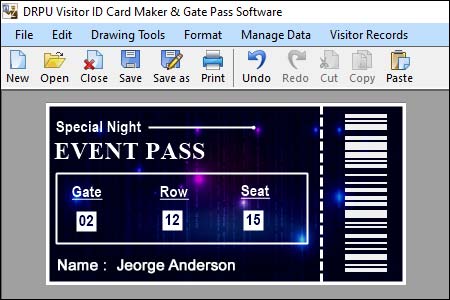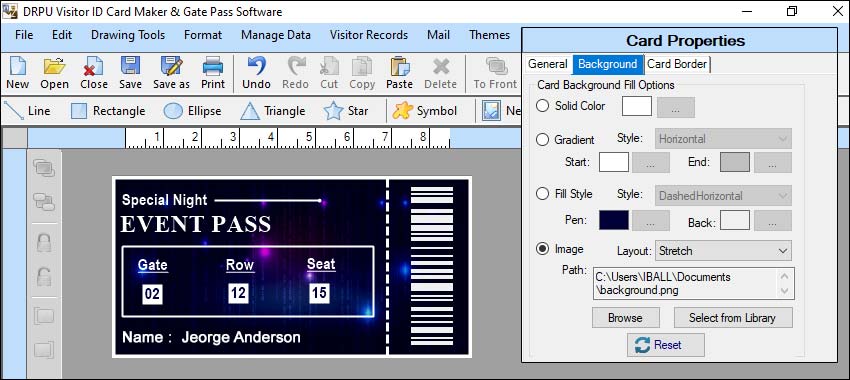Here are some key aspects that contribute to the security of Visitors Management Software:

-
Data Encryption:
To safeguard sensitive visitor information, reputable Visitors Management Software employs encryption techniques. This involves encoding data during transmission and storage, making it unreadable to unauthorized individuals. Secure Sockets Layer (SSL) or Transport Layer Security (TLS) protocols are commonly used to establish encrypted connections between the software and users' devices, ensuring that data remains secure throughout the process.
-
Access Control and Authentication:
Visitors Management Software incorporates access control measures to prevent unauthorized access to visitor data. User authentication mechanisms such as username and password, multi-factor authentication, or integration with existing user authentication systems (e.g., Active Directory) are implemented to ensure that only authorized personnel can access and manage the software.
-
Visitor Privacy:
Visitors' privacy is a critical concern. Visitors Management Software typically includes features to protect visitor privacy, such as automatic data purging after a specified period, the ability to configure data retention policies, and options for visitors to opt-out of data collection (where permitted by applicable regulations). These measures ensure that visitor data is handled responsibly and in compliance with privacy regulations.
-
Role-Based Permissions:
Visitors Management Software often incorporates role-based access control, allowing organizations to define specific roles and permissions for different staff members. This ensures that only authorized personnel can perform specific tasks within the software, reducing the risk of unauthorized data access or modifications.
-
Audit Trail and Logging:
To monitor and track user activities within the software, robust Visitors Management Software maintains detailed audit logs. These logs record actions taken by users, such as visitor check-ins, modifications to visitor records, or access control events. By maintaining an audit trail, the software enables administrators to identify any suspicious or unauthorized activities and investigate potential security incidents.
-
Watchlist Screening:
To enhance security, Visitors Management Software often integrates with watchlist databases or security databases. During the check-in process, visitor information is screened against these databases to identify individuals with restricted access or potential risks. This helps prevent unauthorized entry and ensures compliance with security protocols.
-
Regular Software Updates and Patching:
Security vulnerabilities can arise in any software system. Reputable Visitors Management Software providers regularly release updates and patches to address any identified security weaknesses. It is important to keep the software up to date by applying these updates to ensure the latest security enhancements are in place.
-
Compliance with Security Standards:
Visitors Management Software providers often adhere to recognized security standards and best practices. They may implement measures aligned with industry standards such as ISO 27001 (Information Security Management System) or follow data protection regulations such as GDPR (General Data Protection Regulation) or CCPA (California Consumer Privacy Act). Compliance with these standards ensures that the software meets stringent security requirements and provides a higher level of protection for visitor data.
Visitors Management Software be Used for Events
Visitor Management Software can be effectively used for events and conferences. Here are the details of how it can benefit such settings:

-
Streamlined Check-in Process:
Visitor Management Software simplifies and expedites the check-in process for attendees. Instead of long queues and manual registration, attendees can quickly register online or at self-service kiosks upon arrival. This eliminates paperwork, reduces wait times, and ensures a smooth check-in experience.
-
Ticketing and Registration Management:
The software enables event organizers to manage ticketing and registrations efficiently. It can handle online ticket sales, issue electronic tickets, and capture attendee details during the registration process. This helps organizers keep track of attendee numbers, demographic information, and special requirements.
-
Enhanced Security:
Visitor Management Software improves event security by validating attendee identities and ensuring authorized access. It can screen attendees against watchlists or flagged individuals, enhancing safety measures. The software also enables the printing of event-specific badges or wristbands that allow quick identification of authorized participants.
-
Real-time Monitoring:
Event organizers can monitor attendee movement and track the flow of visitors in real-time using Visitor Management Software. This helps in managing crowd control, identifying peak hours, and allocating resources accordingly. Any unusual or suspicious activity can be quickly detected and addressed.
-
Data Analytics and Reporting:
Visitor Management Software provides valuable data analytics and reporting capabilities for events and conferences. Organizers can gain insights into attendee demographics, preferences, and behaviors. This information can be used for future event planning, marketing strategies, and improving the overall attendee experience.
-
Session Management:
For conferences with multiple sessions or workshops, Visitor Management Software can assist in session management. Attendees can check-in to specific sessions, ensuring proper capacity management and avoiding overcrowding. It can also track attendance and issue session-specific badges or access codes.
-
Exhibitor and Vendor Management:
Visitor Management Software can also streamline the check-in process for exhibitors, vendors, and staff members. It ensures that only authorized personnel have access to specific areas or booths. The software can also track vendor check-ins, manage access passes, and monitor their activity during the event.
-
Personalized Notifications:
The software allows event organizers to send personalized notifications or updates to attendees. This could include schedule changes, session reminders, or announcements. Such proactive communication keeps attendees informed and engaged throughout the event.
-
Emergency Management:
In case of emergencies or evacuations, Visitor Management Software provides an efficient means of accounting for all attendees. It allows event organizers to quickly generate evacuation reports, identify missing persons, and communicate important instructions to attendees.
Overall, Visitor Management Software offers numerous benefits for events and conferences, including streamlined check-in processes, enhanced security, real-time monitoring, data analytics, personalized notifications, and efficient exhibitor management. It significantly improves the overall attendee experience while ensuring the smooth and secure operation of the event.